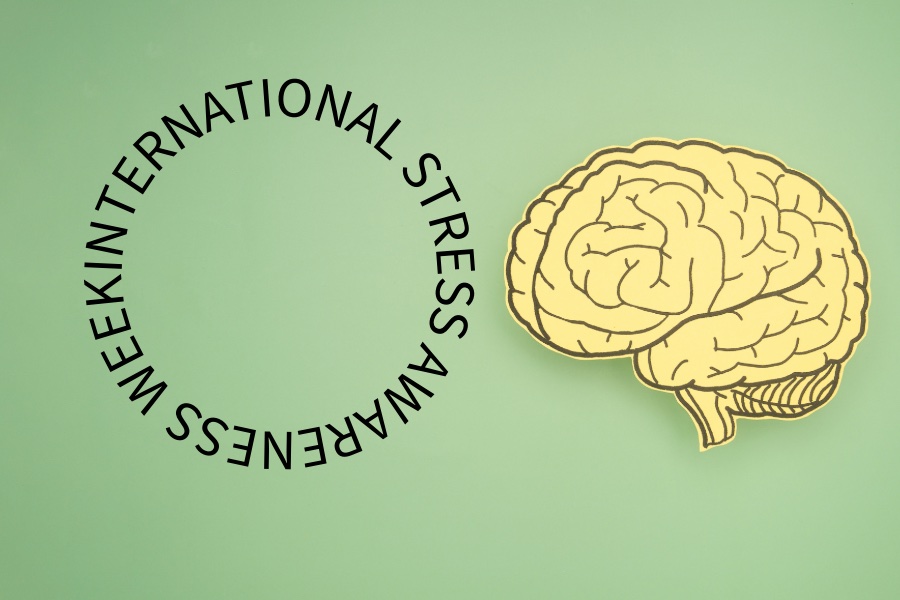International Stress Awareness Week (4th – 8th November) is an event dedicated to promoting stress management and combating the stigma surrounding stress and mental health issues. Established in 2018, its primary goal is to raise awareness about stress prevention.
A key highlight of this week is National Stress Awareness Day, which has been observed since 1998, making it a significant part of this global effort for over 26 years.
How to Celebrate National Stress Awareness Day
Observing National Stress Awareness Day offers a variety of ways to get involved, from creating personal action plans to participating in community-level awareness efforts. Here are a few ideas to help you get started:
Attend a National Stress Awareness Day Event
Recognising that a single day is not enough, the International Stress Management Association (ISMA) has expanded its events to span the entire week. In 2020, ISMA hosted the first-ever Global Stress & Well-Being Summit, an online event where participants could learn and share experiences related to mental health, workplace stress, and employee well-being. These events are planned to occur annually, so check for available events, either online or in your local area.
Become More Aware of the Impact of Stress
National Stress Awareness Day is an ideal time to evaluate and address the stressors in your life. Unmanaged stress can lead to serious health issues, such as high blood pressure, heart disease, and a weakened immune system. These symptoms can compound, creating a cycle of increasing stress and declining health. The first step to breaking this cycle is awareness—recognising the stressors in your life is crucial to managing them effectively.
Engage in Activities to Reduce Stress
While stress is an unavoidable part of life, its impact can be significantly reduced. Incorporating stress-reducing activities into your routine can help you make the most of each day. Here are some strategies to consider:
- Deep Breathing Exercises: Taking a few minutes to practice deep breathing can help calm your mind and restore focus, even during a busy workday.
- Regular Exercise: Keeping your body active through activities like running, walking, bicycling, or yoga can help reduce stress and improve overall well-being.
- Reduce Caffeine Intake: A healthier diet can be a powerful stress-buster. Limiting caffeine to one small serving a day can decrease anxiety and reduce the strain on your body’s adrenal system.
- Journal or Talk About Your Feelings: Expressing your thoughts and emotions to a friend, therapist, or through journaling can be a therapeutic way to cope with stress.
Seek to Minimise the Impact of Stress
One of the most effective ways to celebrate National Stress Awareness Day is to identify and address the sources of stress in your life. Take time to assess the different areas of your life and pinpoint where stress is coming from. Then, make an effort to either remove these stressors or find ways to manage them so they have less impact on your well-being. Removing stress can be challenging, so consider seeking support from organisations like ISMA for strategies and resources.
Enjoy a Day of Freedom
Whatever approach you choose, allow yourself a day of freedom from stress. Whether it’s taking time off work, focusing on your health, or simply enjoying a peaceful day, give yourself permission to relax and recharge. Stress can have serious health consequences, so take action today to start living a more stress-free life.
Further Reading and Resources:
- International Stress Management Association (ISMA)
- Mental Health Foundation: Stress
- World Health Organization: Stress
- National Institute of Mental Health: Coping with Stress
WORKPLACE WELLBEING PROFESSIONAL & STRESS
Workplace Wellbeing Professional understands the substantial impact that both short-term and chronic stress can have on employees physical and mental health. Therefore, we frequently publish helpful and insightful information so employers can better understand employee needs and experiences.
See below recent news stories (with many more to be found under ‘stress’ or ‘burnout’ in the Topic Index):
- When Success Comes at a Price…The Dark Side of High-Paying Careers
- Female Employees Most Likely to be Suffering From Financial Stress
- Stress is Affecting Employees Eye Health and Vision!
Here are some recent exclusive feature articles submitted by healthcare experts (with many more to be found under ‘stress’ or ‘burnout’ in the Topic Index):
- Tom Kiddle: Burnout to Breakthrough – Tackling Workplace Stress
- Amy Bailey: How can Managers Prevent Burnout Amongst Their Staff?
- Claire Williams: The Mental State of the Nation and the Workplace
DON’T FORGET…
Workplace Wellbeing Professional has it’s own comprehensive guide for leaders and managers to recognising and combatting workplace stress, take a look here:


